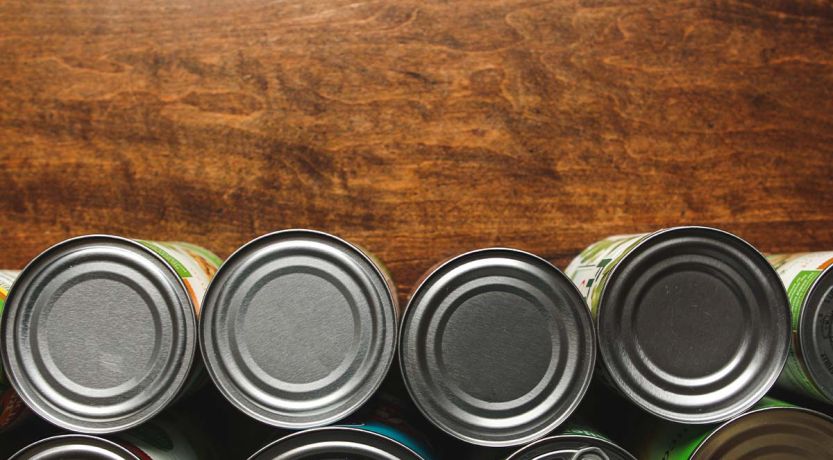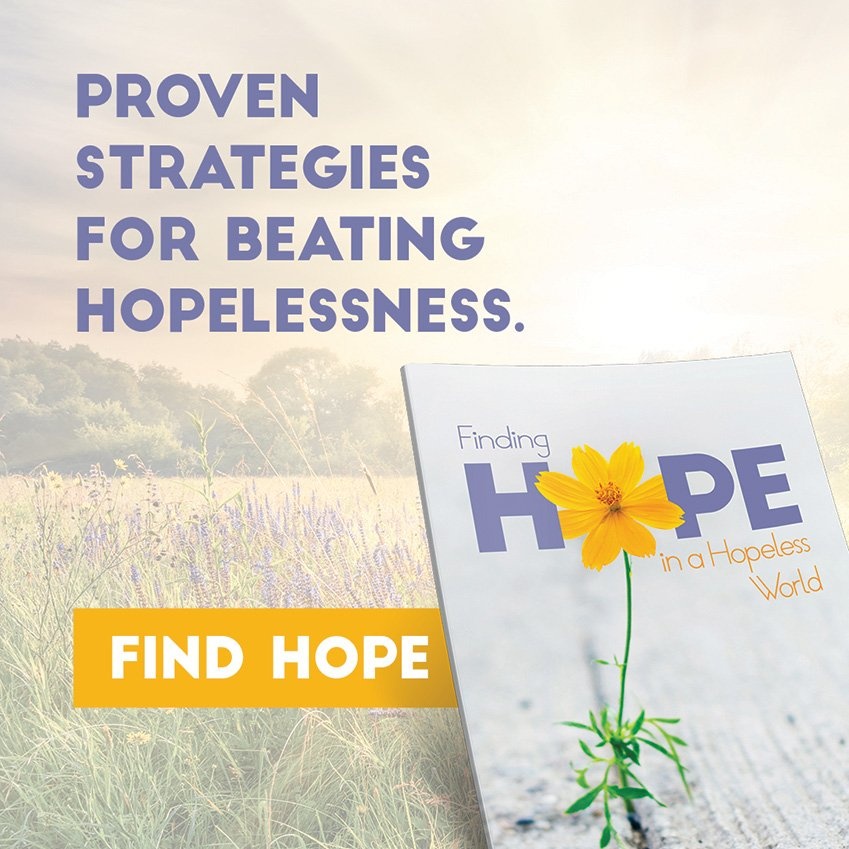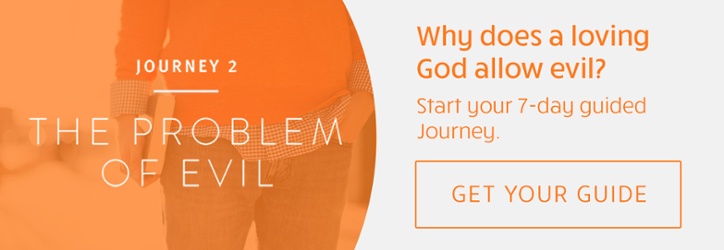.
How to Prepare for the End Times
 “The Bible prophesies many destructive events in the end times. Is there anything we can do to prepare? As Christians, what should our priorities be?
“The Bible prophesies many destructive events in the end times. Is there anything we can do to prepare? As Christians, what should our priorities be?
There is nothing you can physically do to prepare for the end times.
Nothing. Not one single thing.
Here’s a prophecy from the Bible about what the world will look like shortly before the return of Christ. As you read through it, try thinking about what you’d need in order to survive it:
“I looked when He opened the sixth seal, and behold, there was a great earthquake; and the sun became black as sackcloth of hair, and the moon became like blood.
“And the stars of heaven fell to the earth, as a fig tree drops its late figs when it is shaken by a mighty wind.
“Then the sky receded as a scroll when it is rolled up, and every mountain and island was moved out of its place.
“And the kings of the earth, the great men, the rich men, the commanders, the mighty men, every slave and every free man, hid themselves in the caves and in the rocks of the mountains, and said to the mountains and rocks, ‘Fall on us and hide us from the face of Him who sits on the throne and from the wrath of the Lamb! For the great day of His wrath has come, and who is able to stand?’” (Revelation 6:12-17).
Even if you’ve stockpiled enough survival rations to fill an Olympic-sized swimming pool, built a bunker that could withstand a nuclear holocaust and hoarded enough guns and ammo to fend off the standing army of a small country, it won’t be enough.
When “the great day of His wrath has come”—when the earth shakes the mountains and the islands out of place, when stars fall from heaven and the sky recedes like a scroll, when kings and slaves alike cower in fear at the judgment God is raining down on a corrupt earth—all the physical preparation in the world won’t make an ounce of difference.
A quick note about emergency preparedness
Before we go any further, let me clarify something. Even though there’s nothing you can do to physically prepare for the end of the world as we know it, that doesn’t mean it’s a bad idea to prepare for other, less catastrophic emergencies.
The U.S. Department of Homeland Security recommends keeping a disaster supply kit on hand for your family in the event of an emergency that requires you to “survive on your own for several days.” They even offer a checklist you can use as you build your own kit.
Taking steps to make sure your family has what it needs in the wake of a disaster is a good idea. Taking steps to make sure your family can survive the collapse of civilization? Maybe not so much.
Spiritual preparation is what really matters
That said, God does expect us to prepare for the end times—but that’s a spiritual endeavor, not a physical one.
To prepare for the end times, we need to understand what the end times are.
Technically speaking, we’ve been in the “end times” for the last 2,000 years. Peter wrote that Jesus Christ was made manifest “in these last times” (1 Peter 1:20). Paul explained that biblical examples were recorded “for our admonition, upon whom the ends of the ages have come” (1 Corinthians 10:11).
The end times are the final phase of God’s plan before the return of Jesus Christ. They’re the era we’re living in right now—the same era that the early Church existed in as well. (See more in our blog post “Are We Living in the End Times?”)
But, generally, when people talk about the end times, they’re thinking of specific end-time events—the Great Tribulation and the Day of the Lord. The Tribulation is a period of 3½ years immediately preceding the return of Jesus Christ to the earth, and the Day of the Lord often refers to a short but intense period when the world is directly punished by God for its sins, leading into the eternal reign of God.
These are the apocalyptic, cataclysmic events of the end time that we cannot physically prepare for—but that we must spiritually prepare for.
The keys to spiritual preparation
Being prepared for the end times doesn’t require exactly predicting the end times. Paul warned that “the day of the Lord will come like a thief in the night” (1 Thessalonians 5:2, English Standard Version).
We should certainly be aware that the Day of the Lord is coming, and its sudden arrival shouldn’t catch us off guard (1 Peter 5:1-5). But Jesus Himself told His disciples to stay alert, “for you do not know what hour your Lord is coming” (Matthew 24:42), and to “be ready, for the Son of Man is coming at an hour you do not expect” (verse 44).
Just like putting together a disaster supply kit, it’s important to prepare before things get bad. And just as you can refer to a checklist to assemble your own kit, you can also refer to the spiritual checklist God has provided in order to prepare for these big end-time events:
“He has shown you, O man, what is good; and what does the LORD require of you but to do justly, to love mercy, and to walk humbly with your God?” (Micah 6:8).
That’s a short checklist, but it takes a lot of time to tick those boxes. You can put a disaster supply kit together in an afternoon—but doing justly, loving mercy and walking humbly are character attributes that we can spend the rest of our lives refining and perfecting.
God doesn’t expect us to have perfected these attributes before the end-time events unfold. He just expects us to be diligently working on them. Every day gives us new opportunities to be doing just that.
(Read more in our three-part blog series “What Does God Require of You? Do Justly,” “Love Mercy” and “Walk Humbly.”)
What are we preparing for?
In preparing for a disaster, the goal is to survive—to make it safely to the other side of whatever calamity we might experience.
You might say that’s the goal of preparing for end times too—although “making it safely to the other side” looks a little different in this case.
The Bible makes mention of a place in the wilderness where at least some of God’s people will be protected during the events of the Tribulation (Revelation 12:14). Jesus even instructed us to pray for protection during this time: “Watch therefore, and pray always that you may be counted worthy to escape all these things that will come to pass, and to stand before the Son of Man” (Luke 21:36).
But the Bible also talks about martyrs who will be “slain for the word of God and for the testimony which they held” (Revelation 6:9).
Though we should pray and hope we are “counted worthy” to escape the intense suffering of the Great Tribulation, physical survival isn’t the ultimate goal. Standing “before the Son of Man” at His return is. Jesus promised, “This is the will of Him who sent Me, that everyone who sees the Son and believes in Him may have everlasting life; and I will raise him up at the last day” (John 6:40).
Even if we die before or during the final events of the end times, our hope is in a far greater kind of survival. Paul explained that Jesus Christ, at His return, will resurrect and transform His faithful followers as immortal members of the God family: “And as we have borne the image of the man of dust, we shall also bear the image of the heavenly Man” (1 Corinthians 15:49, see also verses 35-55).
If we do justly, love mercy and walk humbly with God—if we live our lives in accordance with His Word and follow His commands—we can expect to make it safely to the other side of the end times, not as physical human beings, but as the spiritual sons and daughters of God Himself:
“‘They shall be Mine,’ says the LORD of hosts, ‘On the day that I make them My jewels. And I will spare them as a man spares his own son who serves him’” (Malachi 3:17).
God’s plan means hope for everyone
But the story doesn’t end there. When God the Father and Jesus Christ set Their plan in motion, They were “not willing that any should perish” (2 Peter 3:9). In the aftermath of the end-time events, the world’s survivors will need leadership, compassion and guidance.
We will have the privilege of providing all those things as we reign with Christ for a thousand years (Revelation 20:4), teaching the rest of humanity to build their own spiritual survival kits—to do justly, to love mercy and to walk humbly with God.
And one day, when “the dead, small and great” (verse 12) are returned to life and brought before God, we’ll be there too, offering a hope for survival that stretches on into eternity.
That’s why we prepare for the end times—not to survive it physically, but because of the incredible future waiting for us on the other side of it. And in that beautiful future, “there shall be no more death, nor sorrow, nor crying. There shall be no more pain, for the former things have passed away” (Revelation 21:4).
That’s something worth preparing for.” From: https://lifehopeandtruth.com/life/christian-living/christianity-in-progress/prepare-for-the-end-times/?
Suggestions welcome. This article was written at a reader’s suggestion. If you’d like to suggest a topic for future editions of “Christianity in Progress,” you can do so anonymously at lifehopeandtruth.com/ideas. We look forward to hearing from you!
_______
God Will Wipe Away Every Tear
Revelation 21:4
“And God will wipe away every tear from their eyes; there shall be no more death, nor sorrow, nor crying. There shall be no more pain, for the former things have passed away.”
“God clearly shows His love for us and His desire for the end of all suffering. The Bible is the story of mankind constantly choosing the way of sin that results in suffering, while our loving God offers forgiveness and a wonderful way of life that results in blessings.
The context of this passage is after the Great White Throne Judgment (Revelation 20:11-12), when every human being will understand the choice God has given, and hopefully the vast majority will accept Christ’s sacrifice and choose to live the way that leads to life. God wants everyone to choose life and to be saved (Deuteronomy 30:19; 1 Timothy 2:4).
After those (hopefully few) who choose death are thrown in the lake of fire, God promises to make all things new. Everyone alive at the time of the new heaven and new earth will have been changed to immortal, spiritual life.
And so at that time when death and pain have become a thing of the past, God will wipe away every tear from their eyes and reveal an eternity of joy to all His children.” From: https://lifehopeandtruth.com/bible/blog/god-will-wipe-away-every-tear/?
For more understanding of the pain and suffering of this current age, see our section on “Why Does God Allow Evil and Suffering?”
_______
Meat Industry Reaction to New Cancer Guidelines
“What was the meat industry’s response to the recommendation by leading cancer charities to stop eating processed meats, such as bacon, ham, hot dogs, sausage, and lunchmeat.”
To see any graphs, charts, graphics, images, and quotes to which Dr. Greger may be referring, watch the video below. This is just an approximation of the audio contributed by Katie Schloer.
Transcript of YouTube: https://youtu.be/k8SDN4QjEXI
“What was the meat industry’s response to the leading cancer charities’ recommendation to stop eating processed meat—like bacon, ham, hot dogs, sausage, and lunchmeat? They acknowledged that the most recent international cancer prevention guidelines now urge people to avoid processed meat.
It is evident that such a statement represents “a clear and present danger” for the meat industry, reads one response in the journal Meat Science. Processed meat, they say, is a social necessity. How could anyone live without bologna? The challenge for the meat industry is to find a way to maintain the consumption of these convenience products while somehow not damaging public health.
We’re still not sure what it is in processed meat that’s so carcinogenic, but the most probable educated guess for explaining the damaging effect of processed meats involves heme compounds, along with nitrosamine and free radical formation, resulting ultimately in carcinogenic DNA damage.
To reduce the nitrosamines, they could remove the nitrites—something that the industry has been considering for decades, because of the long known toxic effects they cause. The industry adds them to keep the meat pink. There are, evidently, other coloring additives available. Nevertheless, it’s going to be hard to get their industry to change, in view of the positive effects of these substances as preservatives, and desirable flavor and red color-developing ingredients. No one wants green eggs and ham.
It’s like salt reduction in meat products. They’d like to, but one of the biggest barriers to salt replacement within the meat industry is cost, as salt is one of the cheapest food ingredients available. Now, there are a number of taste enhancers they can inject into the meat that can help compensate for the salt reduction, but some leave a bitter aftertaste. So, they can also just inject a patented bitter-blocking chemical that can prevent taste nerve stimulation at the same time—the first of what may become a stream of products that are produced due to the convergence of food technology and biotech.
Or, they could always try adding non-meat materials to the meat. You could add fiber, or resistant starch from beans, that have protective effects against cancer. After all, in the United States, dietary fiber is under-consumed by most adults, indicating that fiber fortification in meat products could have health benefits—failing to note, of course, that their products are one of the reasons the American diet is so deficient in fiber in the first place.
The industry is all in favor of reformulating their products to cause less cancer, but obviously any such optimization has to achieve a healthier product without affecting the hedonic aspects. It is important to realize that nutritional and technological quality in the meat industry are inversely related. An improvement in one will lead to deterioration of the other. They know that consumption of lard is not the best thing in the world—heart disease, being our number one killer and all. However, those downsides are in sharp contrast to the technological qualities of saturated fat, which makes it indispensable in the manufacture of meat products. Otherwise, you just don’t get the same lard consistency. The pigs’ fat doesn’t get hard enough, and, as a result, a fatty smear upon cutting or slicing can be observed on the cutting surface of the knife.” From: https://nutritionfacts.org/video/meat-industry-reaction-new-cancer-guidelines/
Note: The processed meats mentioned all seem to contain PORK. (See Leviticus 11)
_______

 “The Bible shows many examples of people refusing to take responsibility for their actions. Must Christians take responsibility for their actions?
“The Bible shows many examples of people refusing to take responsibility for their actions. Must Christians take responsibility for their actions?



 "The book of Acts reveals the miracles that marked the Church’s beginning. The story of the start of the Church of God has important lessons for us today.
"The book of Acts reveals the miracles that marked the Church’s beginning. The story of the start of the Church of God has important lessons for us today. [From the January/February 2014 issue of
[From the January/February 2014 issue of 











